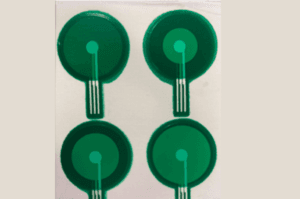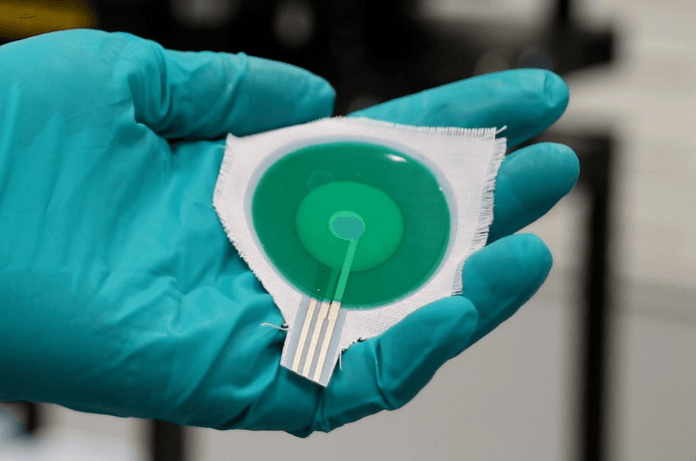Can a small wearable device monitor our health? and Can it change our response to results? Scientists from the University of Southampton, Nottingham Trent University, and med-tech company Zelemiq Ltd have introduced a like-unique sticker that can accurately monitor breathing, even without direct contact with the skin. This cutting-edge device, named PneumoratorTM, has the potential to revolutionize respiratory health monitoring in hospitals and homes, offering an early warning for declining health and, ultimately, saving lives.
This innovation comes at a crucial time when chronic respiratory diseases, such as asthma, sleep apnea, and chronic obstructive pulmonary disease (COPD), affect more than 435 million people globally. The device addresses the limitations of traditional methods, providing an accurate, non-invasive, and efficient solution for monitoring respiratory rates.
Addressing a Critical Need in Healthcare
Respiratory rate is one of the most critical indicators of health, often signaling early signs of deteriorating conditions like sepsis, COVID-19, and other life-threatening illnesses. However, existing methods of monitoring respiratory rates are not without challenges. In hospitals, nurses manually count breaths per minute, a process that can introduce human error and delays in detecting early warning signs.
While there are alternatives, such as chest-band or facemask systems, these can be invasive and uncomfortable, particularly for patients requiring long-term monitoring. This is where the PneumoratorTM stands out.
How the PneumoratorTM Works
The PneumoratorTM employs a unique structure with multiple functional layers that measure frequency variations caused by breathing. This allows it to detect even the smallest changes in chest expansion or lung composition. During trials, the device was able to continuously measure respiratory rates with an impressive accuracy of two breaths per minute. This innovative research was published in the Journals of Sensors.

sensor in four designs | Credit: Sensors
Unlike conventional methods, this sticker-based wearable device does not require direct skin contact, making it suitable for a wider range of applications, including home settings. It can wirelessly transmit data to a smartphone or tablet app, enabling healthcare providers to monitor respiratory trends in real-time.
Professor Neil White, Director of the ECS Centre for Healthcare at the University of Southampton, highlighted the importance of this advancement: “This wearable technology allows the measurement of respiratory rate over long periods of time, which is not achievable using conventional manual breath counting. Trends in respiratory rate can therefore be recorded and observed, offering the potential for rapid interventions that can potentially save lives.”
Practical and Scalable Innovation
One of the standout features of the PneumoratorTM is its low cost and scalability. Designed for mass production, the device aims to make respiratory monitoring accessible and affordable for both healthcare providers and patients.
The research behind the PneumoratorTM has been supported by nearly £1 million in funding from the National Institute for Health Research (NIHR) and further advanced at the NIHR Southampton Biomedical Research Centre. The next step involves clinical trials at University Hospital Southampton to validate the device’s performance and seek regulatory approval within the NHS.
Dr. Harry Akerman, a consultant anesthetist at University Hospital Southampton, emphasized the potential of this device to transform patient care: “Respiratory rate is often the first physiological parameter to change as a patient is becoming unwell—ahead of changes to heart rate, blood pressure, temperature, and oxygen levels. It is also the only one of these that is routinely measured manually and so is susceptible to human error.
We know that earlier detection of diseases is better for patients whilst also being cheaper to treat, so a device that continuously and non-invasively measures respiratory rate could be a great tool in the early detection of deteriorating patients.”
Implications for Chronic Respiratory Conditions
The PneumoratorTM holds particular promise for managing chronic respiratory diseases, which remain a significant global health burden. Conditions like COPD and asthma require consistent monitoring to detect exacerbations early and reduce hospital admissions.
Continuous respiratory monitoring could also benefit individuals with sleep apnea, a condition often linked to cardiovascular problems if left untreated. The sticker’s non-invasive design ensures comfort and convenience for long-term use, offering a viable solution for patients with chronic conditions.
Aiding Healthcare Professionals
Beyond patient benefits, the PneumoratorTM offers healthcare professionals a more reliable tool for respiratory monitoring. Its wireless connectivity allows for seamless integration with existing healthcare systems, providing real-time data that can inform clinical decisions.
Dr. Yang Wei, an expert in electronic textiles and electronic engineering at Nottingham Trent University’s Medical Technologies Innovation Facility, explained: “The ability to continuously measure respiration in this way gives us the potential to enable faster, more effective treatment, significantly enhancing patient outcomes and operational efficiency within the health service.”
This device could also help reduce the workload of healthcare workers by automating the monitoring process, allowing nurses and doctors to focus on other critical aspects of patient care.
A Step Toward Better Health Outcomes
As healthcare systems worldwide face increasing demands, innovations like the PneumoratorTM offer practical solutions to improve patient outcomes and operational efficiency. Early detection of respiratory issues not only saves lives but also reduces the cost of treatment by addressing problems before they escalate.
The PneumoratorTM represents a shift toward smarter, more accessible healthcare technology. Its ability to provide continuous, non-invasive respiratory monitoring sets a new standard for patient care, making it an invaluable tool in both clinical and home settings.
By bridging the gap between traditional methods and modern technology, this sticker could redefine how we approach respiratory health—providing timely interventions and giving patients a better chance at recovery.
As clinical trials progress, the world watches with anticipation for this device to receive regulatory approval and become a part of everyday healthcare practice. With its potential to save lives and improve quality of care, the PneumoratorTM is more than just a technological breakthrough—it’s a beacon of hope for patients and healthcare providers alike.

